Share
Working at ESO
Are you interested in working in areas of frontline technology and in a stimulating international environment? Do you feel your profile matches our requirements? Learn more about our current vacancies and apply online. Read more..
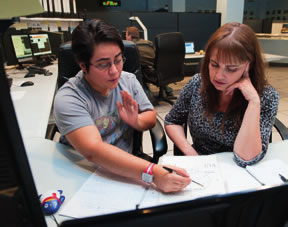
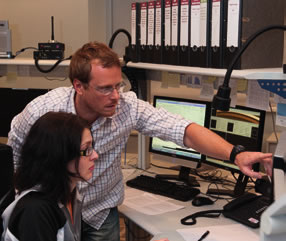
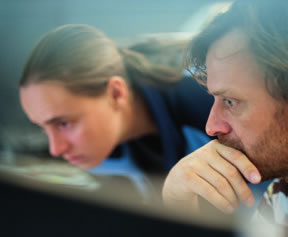
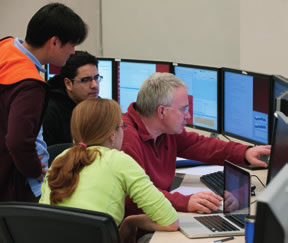
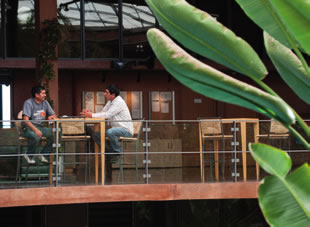

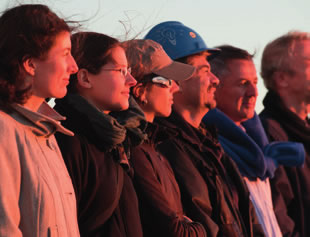

The European Organisation for Astronomical Research in the Southern Hemisphere (ESO) is the foremost intergovernmental astronomy organisation in Europe and the world's most productive ground-based astronomical observatory. ESO carries out an ambitious programme focused on the design, construction and operation of powerful ground-based observing facilities enabling astronomers to make important scientific discoveries. ESO operates three unique world-class observing sites in northern Chile: La Silla, Paranal and Chajnantor (home to ALMA and APEX). The ESO Headquarters are in Garching, near Munich, Germany.
For our Headquarters in Garching within the Directorate for Science, we are looking for a
Postdoc. Researcher - Stellar Dynamical Archeology
Garching
Deadline 30/11/2017
to work with Dr. Glenn van de Ven on "Globular clusters as living fossils of the past of galaxies" funded by the European Research Council (ERC) through Consolidator Grant ArcheoDyn.
The goal is to mine Globular Clusters (GCs) as living fossils of galaxy evolution to address fundamental questions in astrophysics: Do GCs harbour the intermediate mass black holes predicted as seeds of the super-massive black holes in galaxies? Can the origin of multiple stellar populations in GCs be uncovered from distinct dynamical fossil signatures? Can we recover disrupted satellite galaxies from the GCs they left in the host galaxy? For further information on the ArcheoDyn project see also http://eso.org/~gvandeve/ArcheoDyn/.
What we offer:
You will have the opportunity to work within a dedicated team on these forefront science questions, while profiting from the international environment at ESO and other renowned institutes on the campus in Garching and in downtown Munich.
What we expect from you:
Behavioral:
You are expected to immerse in the team and actively participate in ESO's scientific life as well as communicate and support the team's scientific efforts in the international astronomical community.
Technical:
Expertise in dynamical modeling and stellar spectroscopy are assets, while good programming skills are highly desirable. The position will involve the extension and synergy of our Schwarzschild orbit-superposition and discrete chemo-dynamical numerical codes. The combination of computationally intensive stellar population and dynamical models applied to state-of-the-art spectroscopic data will require novel optimisation algorithms and efficient programming. The resulting population-dynamical code will be a unique and powerful tool in uncovering the past of galaxies in a cosmological context.
Qualifications:
PhD in astronomy / physics with affinity for programming or in computer science / applied mathematics with affinity for astronomy.
Language Skills:
An excellent command of the English language - oral, reading and writing - is essential.
Reports to:
Dr. Glenn van de Ven (Astronomer within Directorate for Science).
Remuneration and Contract:
We offer an attractive remuneration package including a competitive salary (tax free), comprehensive pension scheme and medical, educational and other social benefits, as well as financial help in relocating your family and the possibility to place your child/children in day care. The contract duration starts with an initial period of one year followed by a two-year extension (three years in total). For further information, please view ESO's conditions of employment http://www.eso.org/public/jobs/conditions/fellows/.
Starting Date:
Anticipated by 1 October 2018 (with limited flexibility thereafter).
Duty Station:
ESO Headquarters in Garching, near Munich, Germany.
Application:
Please apply online via the ESO Recruitment Portal http://recruitment.eso.org/. Your application should include a cover/motivation letter, a curriculum vitae (with a summary of relevant experience and a list of publications), and a statement of research interests (maximum of two pages). You should also arrange for three persons willing to provide a recommendation letter by the same closing date. Applicants are strongly advised to trigger automatic invitations to these persons via the web application form well in advance of the closing date. Candidates will be notified about of the results of the selection process before 15 February 2018.
Closing date for applications is 30 November 2017.
No nationality is in principle excluded however, recruitment preference will be given to nationals of Australia, Austria, Belgium, Brazil, the Czech Republic, Denmark, Finland, France, Germany, Italy, the Netherlands, Poland, Portugal, Spain, Sweden, Switzerland and the United Kingdom irrespective of gender, age, disability, sexual orientation, race or religion.
